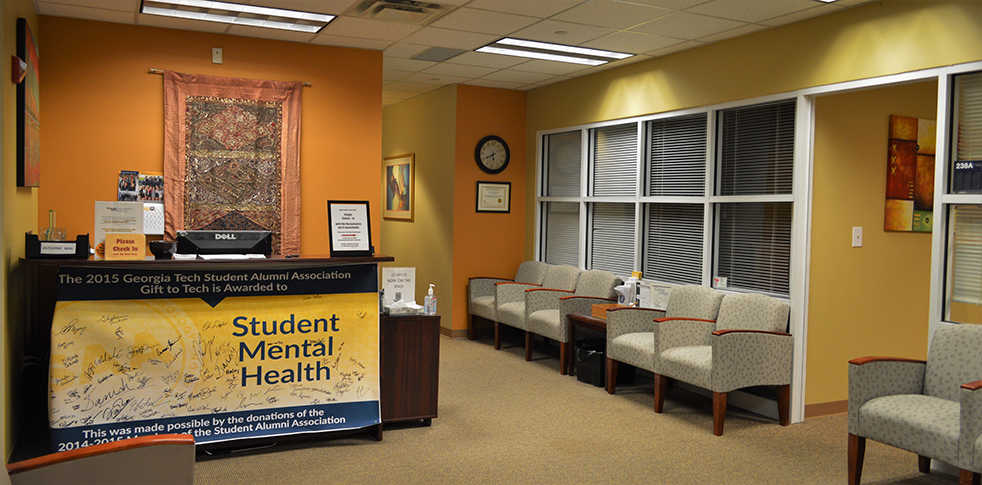Ever since I can remember, I have had anxiety. After it started affecting my daily life, I began therapy.
It was no miracle cure, but having an outlet, having an objective listener, a listener who provided me with strategies to cope with my angst, provided room for me to deal with my anxiety in a healthy manner.
After arriving at Georgia Tech, I thought I had a handle on my anxiety. I was wrong.
For a semester I was miserable — overthinking everything, stressing about things from friends to finals, but this was not normal stress. It kept me from smiling; it kept me from studying.
I knew then that I had to seek help again, so I went to the Georgia Tech Counseling Center.
Upon visiting, I had my initial consultation with a therapist, informing her that I wanted to have individual therapy because I knew it worked for me. I came back a week later to find a list of five off-campus therapists, and I told her that I did not have a car, so it would be nearly impossible to see a therapist off campus. She replied to me with nothing — no reassurance whatsoever.
I left the counseling center feeling defeated. Thinking I had no other choice but to deal with my anxiety on my own, that is what I did for another year, and I was miserable.
Returning a year later, they persuaded me to try group therapy before I could have individual counseling. I reluctantly agreed, knowing that this was my only option. I stuck with group counseling for a semester and agreed to go back the following Fall, so I informed the head counselor. He assured me he would contact me when the semester started up again, but two months later, I have received no contact, which is a story for another time.
In the time that I was enrolled in group therapy, fueled by my anger, I took matters into my own hands to try and fix the issues that the counseling center had: the main one being that students were allowed only sixteen individual counseling sessions per calendar year, which means that students would not even be able to attend therapy twice a month.
I emailed to meet with President Bud Peterson, and I received an email back saying that he was too busy.
Something as important as mental health is something that the president should want to hear about. His secretary replied with the same answer, so I met with the Dean of Students, John Stein, who oversees the counseling
center.
Armed with confidence and a presentation in hand, I was hopeful that upon speaking to a staff member with power, that some positive change would be delivered soon, but instead, after my suggestion of the reallocation of monetary funds to benefit the counseling center and trying to hire licensed volunteer therapists, he informed me that the school had recently hired more counselors, but obviously this was not enough, right? He informed me that there was not enough space. He informed me that the sixteen sessions were put in place because new patients could not be seen otherwise. He informed me that this would all be risky because of the liability that came with it.
Liability comes with anything worthwhile, though.
I left feeling defeated, but I went to speak with the head of the counseling center, telling him of my poor experience at the counseling center.
Bottom line: nothing improved. In fact, now, instead of even receiving sixteen individual counseling sessions (which they try to discourage) per year, students can receive only sixteen sessions for their entire time at the Institute.
Two years ago, I optimistically visited the counseling center to get help. Twenty-three months ago, I left the counseling center feeling discouraged. Ten months ago, I tried to speak with Mr. Bud Peterson about the poor mental health resources at Tech and ways to improve it. Nine months ago, Mr. Stein said nothing to reassure me after I met with him. A few weeks ago, a student on campus was shot, which quite possibly could have been hindered if they had received help for their mental health issues.
Is a death on campus what it takes to bring about change? Why does change have to happen after it’s too late?
If we had had better mental health programs, maybe the recent death on campus could have been prevented.
The Institute needs to start spending money on things that matter. Let’s start spending money to better Georgia Tech’s counseling services.
Correction: Scout Schultz was incorrectly referred to using ‘he/him’ pronouns in the original letter. Schultz used ‘they/them’ pronouns.
